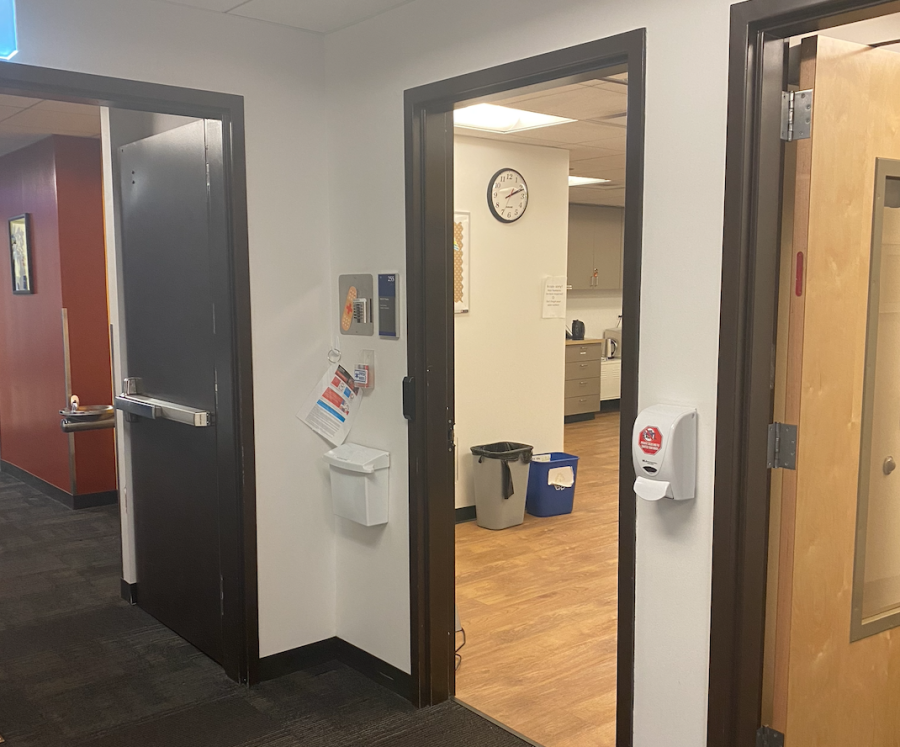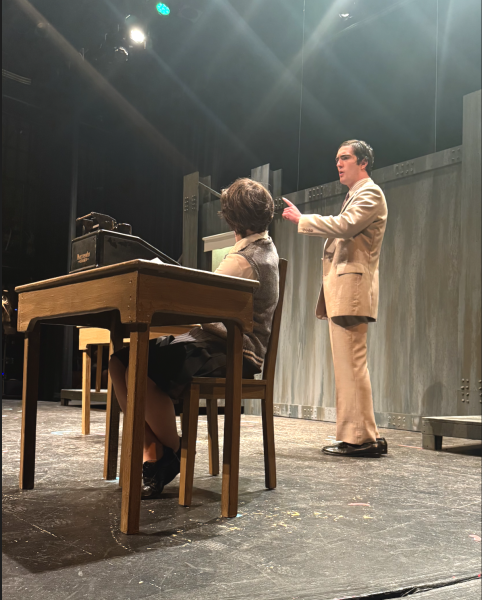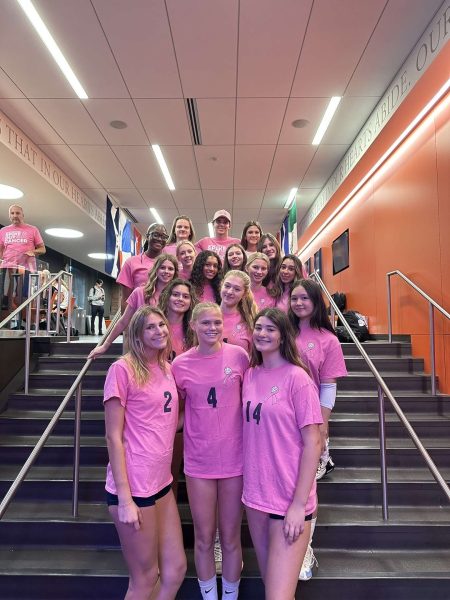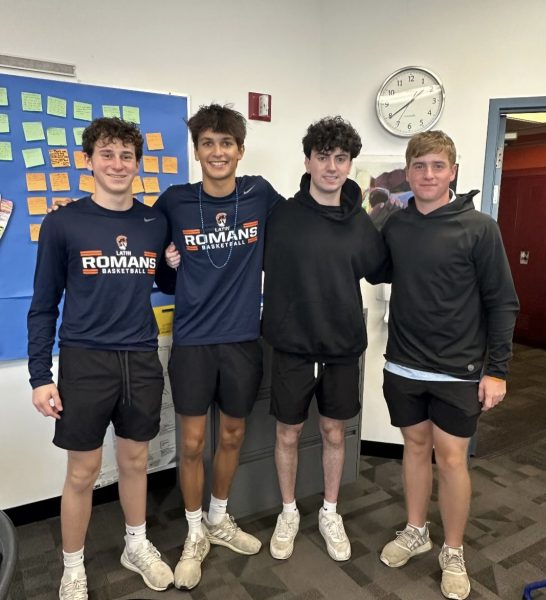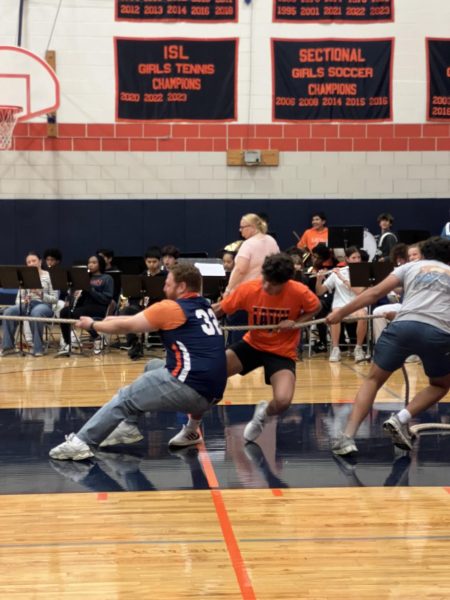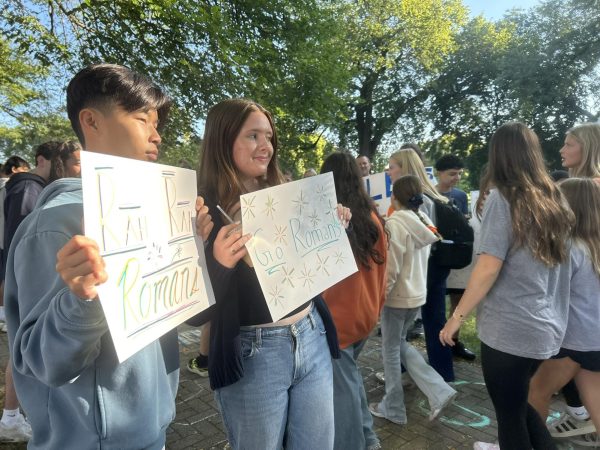RSV Surges Across Country: Is the Lower School Next?
Latin Nurses’ Office, where sick students go to be treated during the school day.
Just as Americans are feeling good about starting to emerge from the COVID pandemic, Respiratory Syncytial Virus (RSV) is creating chaos for schools and hospitals across the country.
According to the U.S. Centers for Disease Control, RSV is a “common respiratory virus that usually causes mild, cold-like symptoms.” RSV can be spread through “virus droplets from a cough or sneeze in your eyes, nose, or mouth, direct contact with the virus, like kissing the face of a child with RSV or touch[ing] a surface that has the virus on it, like a doorknob, and then touch[ing] your face before washing your hands.”
Dr. Elaine Rosenfeld, Director of Pediatric Infectious Disease for Advocate Children’s Hospitals, said, “Most children are sick for only a few days, but the hospital is increasingly seeing children with more serious symptoms.”
Lower School Nurse Ingrid Surkan said, “Activity in the health office comes in waves based on many factors.” To date, only a few students in Latin’s Lower School have suffered from a confirmed case of RSV, but worse could be ahead, as many other schools around the country have filled up emergency rooms with sick children.
Kristin Gulinski, Upper School history teacher and Lower School parent, said that Latin attendance has been affected, and sickness of all sorts seems to be higher in all grade levels.
Dr. Rosenfeld hypothesizes that the rise in sickness is due to “people staying home during the pandemic and not being exposed to RSV.” Dr. Rosenfeld explained, “By the time children are 3, they usually have the antibodies to fight RSV virus, but COVID prevented children from getting these antibodies, and therefore, we are now seeing children up to 6 getting the virus.”
Even as Latin encourages students to stay home if feeling ill, there are no remote options as there were for students during COVID. When students are ill, they inevitably miss class time. Although being out sick does mean a student misses out on learning, Ms. Gulinski emphasized, “If you need to stay home because you are sick, you should stay home [to] help the community as a whole, to prevent serious illness or spread.” Ms. Gulinski elaborated that staying home sick is also important for the sick student’s well-being. “In order to be successful academically, you need to be mentally and physically well.”
Erika Katz, Junior Kindergarten teacher at Latin, said that absent students are supported. “If a student is gone with RSV, we will often put aside the assignments missed. Once they return and are back to their cheerful self, we will find a quiet time to sit down and work with the student one-on-one to complete the tasks.”
Lower School students are so young, they often are unaware they may be sick. This puts an extra burden on teachers such as Ms. Katz, who says she and her colleagues are on “high alert to watch for other kids at school and showing symptoms. If they show symptoms, we take them to the nurse for further screening.”
Because RSV affects some young children severely, many pediatric hospitals around the country have filled up, resulting in long wait times at emergency rooms and not enough beds to accommodate sick children. Dr. Rosenfeld said, “The mix of flu, RSV and COVID [have created] the unfortunate perfect storm.”
According to the Chicago Tribune, “University of Chicago Medicine Comer Children’s Hospital has been full for 53 days in a row. … Lurie Children’s Hospital is also running at capacity, meaning all of its beds are generally full.”
Dr. Rosenfeld said, “All kids are being treated; we are not turning away sick kids. It’s just a matter of how long a child will wait and what type of care they will get. There may be a 12- to 36-hour wait, and the patients may be treated in the hallway, but everyone is getting attended to.”
There are no antiviral treatments for children with RSV. According to Dr. Rosenfeld, only supportive care is available. “We can only help by rehydrating RSV patients or giving them oxygen,” she said.
Although an approved RSV vaccine is not currently available, Pfizer has one in the works. According to a recent CNN article, “In the trial, the vaccine was given to pregnant people and appeared to be about 80 percent effective at preventing severe RSV disease in their infants in the first three months of life. It also cut a baby’s risk of needing to see a doctor for an RSV infection by half.”
Dr. Rosenfeld said, “The vaccine has been in the works for years. Nobody knows when it will be ready, definitely not for this RSV season, but maybe the next.”
Dr. Rosenfeld said that another potential approach is a drug given to children at high risk of RSV before the season begins to prevent the illness. “Currently, in medical circles, there is much discussion over whether this is the best approach to preventing RSV,” she said.
To prevent illness, Ms. Gulinski said, “My family tries to focus on what’s in our control, which is making sure our daughter is boosted, has a flu shot, and stays home when sick and masks when necessary. It is truly a juggling act when you work full-time and are trying to stay well and help your sick child.”
As Ms. Gulisnki emphasized, “Chicago health officials are concerned about not putting a strain on our health care system even more, so all of us need to be good community members and follow health department guidelines.”














































